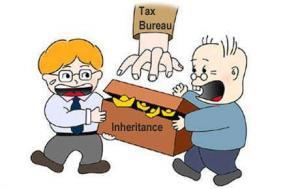INHERITANCE TAX IN ANDALUSIA: CHANGES AHEAD

On 1 August, the Regional Government of Andalusia approved the first of two reforms of inheritance tax in Andalusia. This reform and the upcoming one aim to improve taxation for heirs.
The first reform affected the acquisition of a person’s usual residence by heirs and a series of reductions were approved, ranging from 100% to 95% when the value of the home exceeds €242,000. The reduction in inheritance tax in this sense is very significant.
However, it should be noted that only in estates inherited from parents by children (whether biological or adopted), spouses, relatives in the ascending line and persons related collaterally (siblings, cousins or grandparents) over the age of 65 can an heir in Andalusia opt for the reduction for the acquisition of the usual residence. Likewise, the following requirements must be met:
- Having lived with the deceased person in the usual residence during the two years preceding death.
- Maintaining ownership of this residence for 3 years.
Furthermore, the Regional Government of Andalusia has announced that it would complete a second reform of Inheritance Tax, which will enter into force on 1 January 2017.
In this case, the minimum exempt from Inheritance Tax in Andalusia will be of €250,000 per heir. I.e. heirs inheriting assets valued at an amount equal to or smaller than €250,000 will not have to pay Inheritance Tax in Andalusia.
As explained in a previous article, this exemption only applies to descendants or adopted children of the deceased person, as well as their relatives in the ascending line or adoptive parents and spouses, provided the pre-existing assets of the heir are equal to or less than €402,678.11.
Lastly, another substantial change should be noted as, for estates with a value of between €250,000 and €350,000, a minimum value of €200,000 is established. I.e. if the inheritance received by a child or widowed spouse is valued at more than €250,000, the first €200,000 would be exempt from inheritance tax and only the remaining amount would be paid, provided that the total value of the estate does not exceed €350,000. If this amount is exceeded, inheritance tax would be payable on the entire value of the estate, without the possibility to apply any exemption.
Lastly, I would like to remind you that the best way to plan your inheritance begins with your will, for which reason it is always best to go to an appropriate professional who can examine your situation and give you personal advice.
Author: Gustavo Calero Monereo, C&D Solicitors, Malaga, Andalusia.




